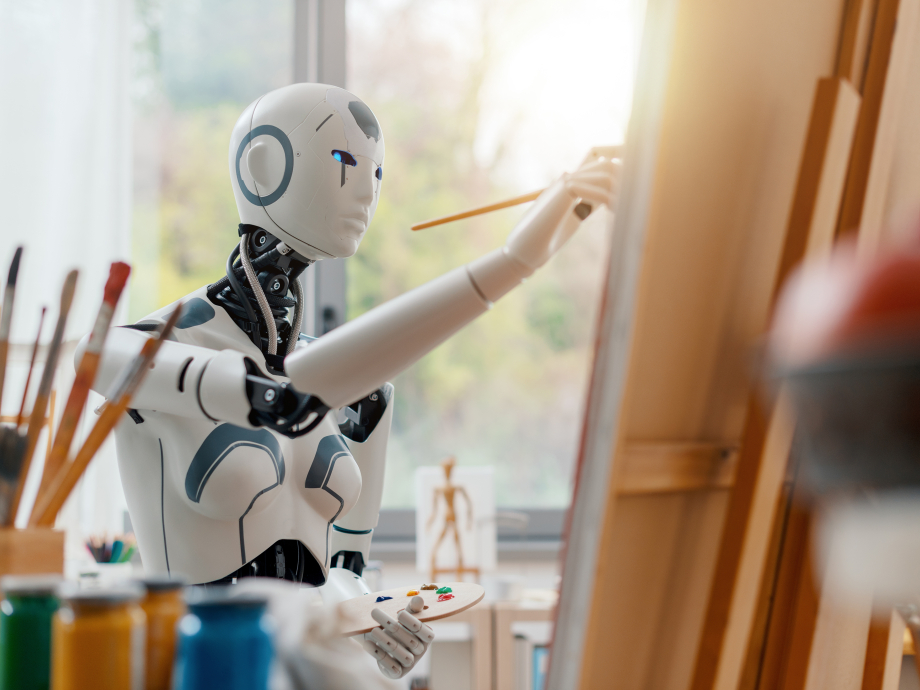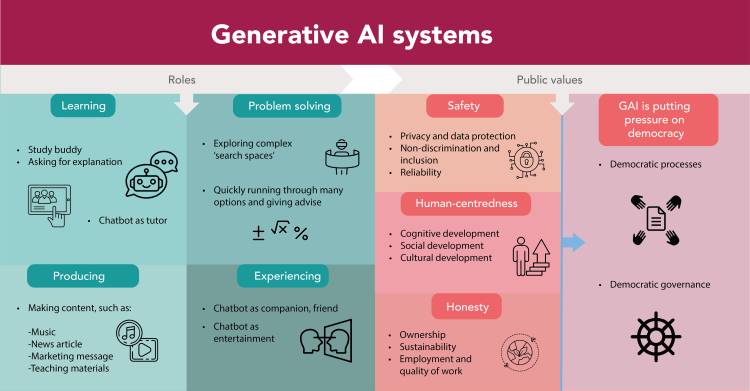Risks of generative AI necessitate restraint in use
The rise of generative AI systems amplifies known risks of digitisation, such as discrimination and insecurity. In addition, the technology poses new risks to intellectual property and human development. Current and announced policies need to be reviewed and strengthened. Organisations, companies and citizens should ask themselves whether they can use generative AI responsibly. This is what the Rathenau Instituut concludes in its new report about generative AI.

It is a very real possibility that current and announced policies, including the forthcoming European AI Regulation, may not be sufficient to counter the risks of generative AI systems. The Rathenau Instituut recommends policymakers and politicians to review and strengthen national and European policies and, with the AI regulation, create the possibility to remove high-risk generative AI systems from the market. In the meantime it is needed to monitor support, reach agreements with developers, and facilitate public debate on the desirability of generative AI systems such as ChatGPT, Bard and DALL-E.
The emergence of generative AI systems amplifies and complicates known risks of digitisation. Production of disinformation becomes easier and protection of data more complicated. And while it was already difficult to obtain transparency on the operation of AI systems, this is almost impossible with the more complex generative AI systems. Generative AI also poses new risks to, for example, intellectual property protection. The influence of some large technology companies was already strong in social domains such as healthcare or education, but is expanding further into science. All in all, generative AI puts pressure on democratic processes such as access to knowledge, news and public debate, and makes it even more difficult to gain democratic control over technology.
"Politicians and policymakers need to act now to counter the risks of generative AI, but it takes time before policies will have an effect," said research coordinator Linda Kool. "Until then, every citizen and organisation faces the question of whether they can use the technology responsibly at this time."

The Rathenau publication Generative AI provides an overview of the types of applications of generative AI and their societal impact. Generative AI systems represent a breakthrough in digitisation because, unlike other AI systems, they can perform many different tasks and work with different modalities: text, image and sound, as well as protein structures or chemical compounds. The technology is significantly better at language than other AI systems, allowing people to be addressed, entertained or enticed by a chatbot, and an AI system can also take over non-routine tasks.
The Rathenau Instituut developed the publication at the request of the Ministry of the Interior and Kingdom Relations. The research is based on literature review, dialogue sessions and interviews with experts.